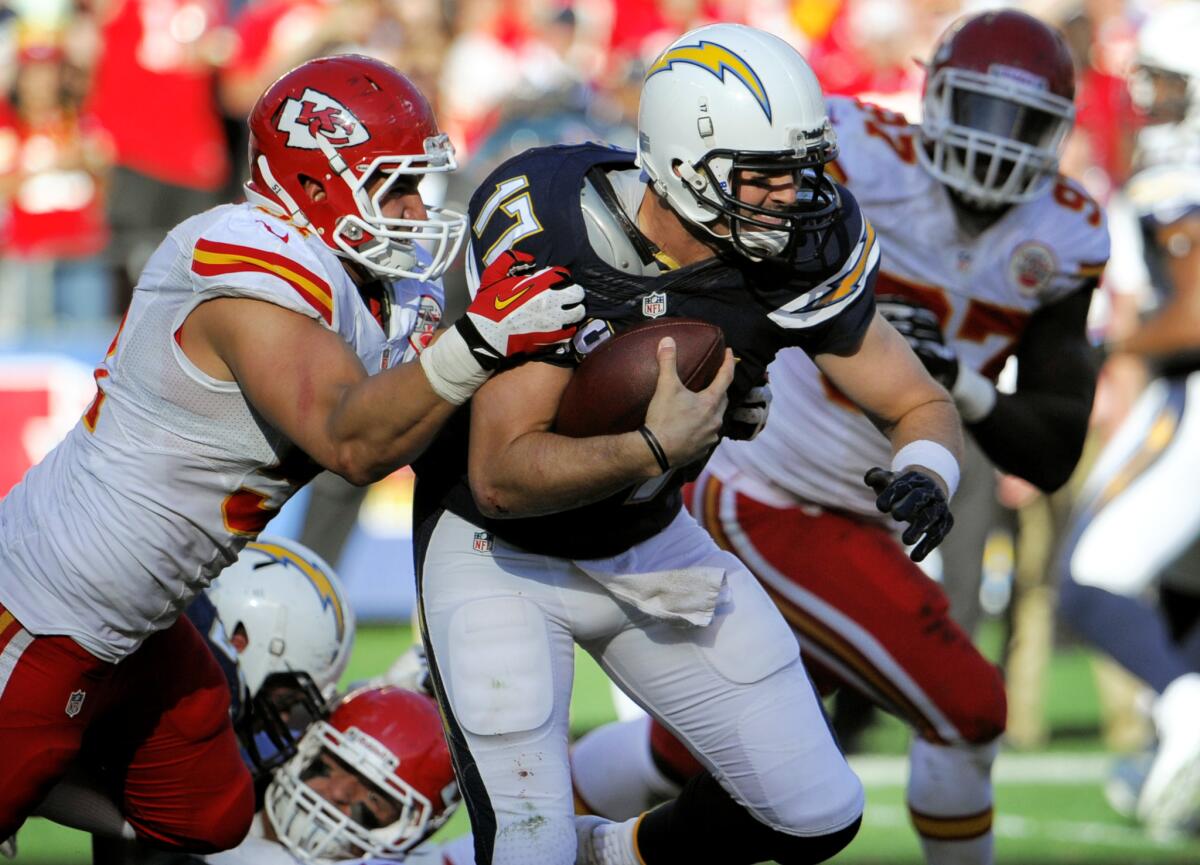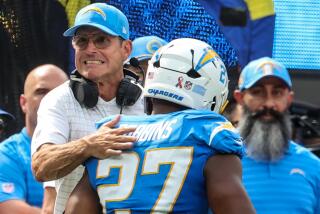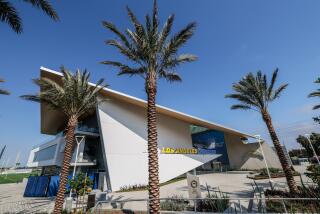As Chargers’ future in San Diego hangs in balance, tempers rise

Political discord increased Tuesday between the San Diego Chargers and Mayor Kevin Faulconer over whether the city will build a new stadium to keep the team from moving to Los Angeles.
The two sides exchanged increasingly pointed barbs accusing the other of not dealing in good faith to solve the volatile issue.
On Monday, the Chargers’ special counsel Mark Fabiani reminded a committee recently appointed by the mayor that the team has spent 14 frustrating years and $15 million developing stadium proposals that flopped amid a lack of political support from City Hall.
He suggested that the Chargers ownership suspects that the mayor’s committee will propose a “half-baked” plan that is sure to lose at the polls or courts but will allow Faulconer and others to claim that they tried to save the team and thus avoid political damage.
“Simply put, we have no intention of allowing the Chargers franchise to be manipulated for political cover,” Fabiani told the committee, “and we will call out any elected official who tries to do so.”
On Tuesday, Fabiani, in a letter to Faulconer, criticized Jason Roe, who was a consultant to Faulconer’s election last year and attended the committee meeting even though he is not a member and the session was closed to the press and public. He also noted that Roe is a lobbyist for a firm bidding to be a concessionaire at Qualcomm Stadium.
“Have you asked the city attorney for an opinion on the propriety of Mr. Roe’s intensive involvement with the task force’s work?” Fabiani wrote. “If you have not yet asked for such an opinion from the city attorney, do you intend to do so?”
Roe answered back with a wry reference to the Chargers drafting a quarterback in what turned out to be one of the biggest flops in NFL history.
“Ryan Leaf is no longer the worst personnel decision in Chargers history,” Roe responded. “In 14 years of failure, Mark Fabiani has done nothing but make excuses, lay blame, and pick fights. The mayor’s advisory committee is just that – the mayor’s advisory committee, and Mark does not get to dictate how the mayor organizes his advisory group.”
Late Tuesday, Faulconer sent a letter to Chargers President Dean Spanos expressing disappointment over the “divisive tone and criticism” in Fabiani’s letter.
“Whatever animosity Mr. Fabiani feels against this group of volunteers (on the committee) or the city of San Diego is misplaced,” Faulconer wrote. “...I would be happy to discuss this with you one-on-one, without any advisors or staff.”
Faulconer has said he wants the committee to deliver both a site and a financing plan by fall with the goal of having it on the ballot in November 2016. If he seeks reelection, Faulconer might be on the same ballot.
But if the Chargers wait until after the November 2016 election to exercise an option to move to Los Angeles, they might be shut out of that larger, more lucrative market. By then it’s possible that other NFL teams would have made such a move.
Fabiani noted that the city, in devising a financing plan for a convention center expansion, tried to get around a state law requiring a two-thirds vote of the public to raise taxes. The financing plan was rejected by an appeals court and the expansion is now stalled.
A spokesman for the mayor said that Fabiani seemed to be calling for a tax increase to finance a stadium but that the mayor feels a tax increase is only one of several options and possibly not the best one. The committee is tasked with looking at all options, the spokesman said.
While the Chargers’ request for a new stadium to replace Qualcomm is not new, the issue has taken on a tone of civic urgency with the move by the owner of the St. Louis Rams to build a stadium in Inglewood and possibly relocate the Rams.
That has given rise to concerns in San Diego that the Chargers could try to beat the Rams to Los Angeles or, failing that, become a tenant at the Inglewood stadium along with the Rams. The latter strategy would allow the team to avoid giving up an ownership share.
The Chargers are on a year-to-year lease at Qualcomm and can opt each year to signal a move. If they made that decision next year and received permission from the NFL, the team could conceivably play in the Rose Bowl or Coliseum until the Inglewood stadium is completed.
San Diego City Council members, in their public comments, held out some optimism and called for calm.
“Let’s hope the rockiness of the last month will lead to an honest exchange that builds trust and ultimately the partnership that is necessary if a new stadium will be constructed,” said Councilman Todd Gloria.
Councilman Scott Sherman said that “We must avoid political infighting and instead submit meaningful proposals that can be discussed in a respectful manner.”
For more San Diego news, follow @LATSanDiego.
More to Read
Sign up for Essential California
The most important California stories and recommendations in your inbox every morning.
You may occasionally receive promotional content from the Los Angeles Times.










